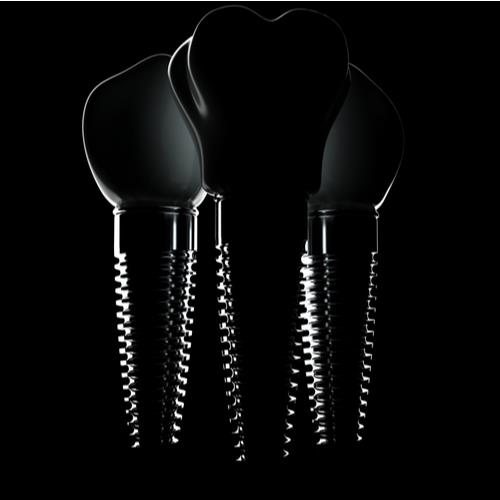03 August 2020
 Advanced research into the amazing antimicrobial properties found in creatures and plants has laid the groundwork for a new partnership between medical technology company, ANISOP Holdings and the University of South Australia, to develop advanced dental implants resistant to microbial infection.
Advanced research into the amazing antimicrobial properties found in creatures and plants has laid the groundwork for a new partnership between medical technology company, ANISOP Holdings and the University of South Australia, to develop advanced dental implants resistant to microbial infection.
Lead UniSA researcher, Professor Krasi Vasilev says the goal of the partnership is to translate the nanoengineering concepts into new and improved implants that protect patients from implant-related infections.
“This is the beginning of an exciting collaboration with the potential for growth to include a wider range of medical devices,” Prof Vasilev says.
Identifying the significant problem of increasingly antibiotic-resistant bacteria and how infection and biofilms can reduce the success of a range of expensive orthopaedic implants and trauma devices, from hip and knee joints to catheters, UniSA researchers have looked to nature to find examples of bacterial and microbial resistance.
“Research has shown that the surfaces of certain species of plants and animals are highly resistant to microbial attack because of their unique structure at the nanoscale,” Prof Vasilev says.
“Our work has focussed on mimicking structures found on the wings of insects which contain billions of nanopillars that operate as a nanomechanical barrier to bacterial colonisation.
“The structure mechanically kills the same broad range of bacteria known to cause orthopaedic and dental implant infections, which can lead to the failure of the procedure.”
With proof of concept research already undertaken and patents awarded in both Australia and the EU, the UniSA-ANISOP collaboration will take the research from the bench to the bedside, by demonstrating the safety and efficacy of new nanoengineered surfaces for implants.
“The impressive breakthrough with this research is that it relies on a nanomechanics to defend from bacteria rather than drawing on a diminishing pool of antibiotics to fight infection,” Prof Vasilev says.
“This kind of nanotechnology opens up important new ways of preventing infections before they become a serious or potentially life-threatening problem. It will also help save millions globally from the costs of having to repeat implant procedures for, in the case of some devices, the five to 10 per cent that fail.”
The UniSA-ANISOP collaboration will position products for market and commercial success in what is a $5 billion global dental implant market, as well as provide licensing opportunities for orthopaedic and trauma applications.
ANISOP Chief Medical and Technology Officer, Dr Dan Barker says infection prevention is the most important unmet need for medical devices such as dental and orthopaedic implants.
“We have acquired the intellectual property rights to commercialise a novel surface treatment for titanium implants that is transformational, safe, and effective,” Dr Barker says.
“Our partnership with UniSA, and access to world experts such as Professor Vasilev, is a key strategic ingredient to help take this technology to market.”
UniSA Deputy Vice Chancellor Research and Enterprise, Professor Marnie Warrington-Hughes says the collaboration is a cogent example of how universities play a significant role in creating new knowledge and supporting its commercialisation.
“This research started with a clear industry problem and researchers brought their considerable creativity and knowledge to finding a solution that could be applied in an industry context – considering all the elements, from the actual nano-engineering, to how that technology could be brought to a commercial manufacturing environment,” Prof Hughes-Warrington says.
“Its exciting stuff and it highlights the significant contribution UniSA is making to South Australia and to developing technologies that will play a role in rebuilding our economy post the pandemic.”
media contact: Michèle Nardelli phone: +61 418 823 673 or +61 8 8302 0966 email: michele.nardelli@unisa.edu.au




